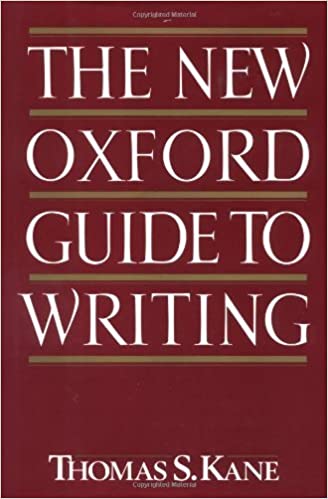Everything you will ever write will need a thesis. A thesis is quite simply the point. It is the reason you are writing at all. The thesis is the difference between aimless ramblings and a clear discussion of a topic.
Football, without the goal of winning, is just a bunch of guys running around on a field. Similarly a paper without a thesis is just a bunch of loosely connected sentences. A well-written thesis provides the foundation for a great essay, term paper or dissertation.

The jumping off point for creating a thesis is the topic. In high school and college classes the topics for essays and term papers are assigned. It is up to the student to turn an assigned topic into a thesis that will provide the foundation for an well-organized paper.
Thesis Writing Guides
There are many writing guides available to assist nearly every form of writing. Online guides include Purdue’s OWL (online writing lab) and Harvard University’s Developing a Thesis. Published guides include the MLA Handbook for Writers of Research Papers and The New Oxford Guide to Writing.

Both can be purchased at Amazon.com or any local bookstore. These guides provide a great deal of useful advice. However their advice about thesis writing often seems contradictory and confusing. “It must not be too complex.” “Do not make it too simple.” “Be specific, but not too specific.” “A thesis must be analytical, expository or argumentative.” “A thesis statement must be open to debate.” This advice can paralyze a new writer making him so worried about writing a wrong thesis that he can’t write a thesis at all.

A good rule of thumb for changing a topic into a thesis is to make it personal. If a writer can find something in the topic with which he can relate, he can transform that connection into a thesis. Careful consideration of an assigned topic can often point the student to a terrific thesis statement.
Thesis Writing for an Emotional Topic
Often a topic will elicit a gut level reaction. For example the topic “Should the United States be at war with Iraq?” will spark an immediate response in most people. They will either respond, “Absolutely Yes!” or “Absolutely No!” Once a student puts it into a clear statement, that gut reaction is his thesis.

“The United States invaded Iraq under the morally questionable Bush Doctrine of preemptive war and in violation of Iraq’s sovereign rights.” A thesis from the opposing point of view might be, “It is essential for the United States’ security to root out terrorists wherever they may be and therefore the United States’ invasion of Iraq was necessary to protect its people and property.” Either statement could be developed into a clear and well-written paper.
- What Is Aromatherapy Vs. What Are Essential Oils?
- What is La Tomatina in Bunol, Spain Like? What to Expect at the Famous Tomato Throwing Festival
Thesis Writing for an Easy Topic
Occasionally the given topic is a ‘no-brainer.’ “Sesame Street is an excellent show for children.” In this situation the writer can take one of two approaches. The easy approach is to agree and provide evidence to support the obvious.

“Sesame Street’s value as a children’s program can be seen in the increased vocabulary and reading skills of children who watch it regularly.” The other approach is harder, but may earn points for originality. That is to disagree and provide evidence to disprove the obvious. “Sesame Street is damaging to children because it develops entrenched patterns of inactivity and spoon-fed learning.”
Thesis Writing for a Difficult Topic
Sometimes a writer is provided with a topic which is completely alien to him. “Discuss Hemmingway’s theme of the futility of war as shown in his novel A Farewell to Arms.” The writer might look at that topic and be completely lost.

He vaguely remembers reading the book as part of class, but everything about the book is gone from his memory. However, he is a fan of heavy metal music. He knows that Metallica’s song “One” is also about the futility of war. He could create a thesis that ties an alien topic to a familiar one.
“The futility of war is a common theme in all art forms ranging from novels like A Farewell to Arms by Ernest Hemmingway to songs like Metallica’s ‘One’.” Half of the paper will be about a topic he knows extremely well. It might compensate for the half of the paper he does not know that well.
Basic Rules for Thesis Writing

There are, of course, some hard and fast rules to thesis writing. The thesis must make a statement that demands a supporting argument. The writer must ‘make his case’ so to speak. It should give the reader an idea of what is coming in the paper. A thesis never uses the first person (“I”) or second person (“you”).
A thesis avoids extreme statements. The writer should beware of words like “always,” “never,” “best,” “worst,” “everyone,” and “no one”. Finally, a thesis should interest the reader enough to keep them reading. If the reader’s reaction to a thesis is “So?” he will stop reading and the writer has failed to communicate his thoughts.

No matter what the topic, a good thesis is essential. A clear thesis lays the foundation for a clear and well thought out paper. By taking a given topic and making it his own, a good writer can create a thesis on any subject no matter how obscure. Once the thesis is written the next step is to create an outline for the paper.


















